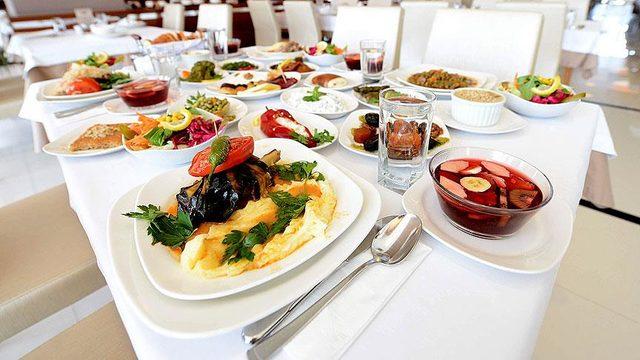Gastroenterology Specialist Dr. Fuad Jafarov warned those with reflux problems about what they should pay attention to during Ramadan.
Expert who defined reflux disease. Dr. Jafarov said, “Gastroesophageal reflux disease is a condition in which the contents of the stomach come up into the esophagus and sometimes into the pharynx and mouth. Reflux symptoms may sometimes occur in healthy individuals. However, when these symptoms reach a certain number and character, they are considered a disease and require examination and treatment. Uncontrolled reflux causes damage to the lower end of the esophagus. “In some patients, irritation reaching the pharynx and larynx can be observed,” he said.
“SPONG SPICES, SOUR AND BITTER FOODS MAY INCREASE THE RISK”
Specialist touched upon how individuals with reflux problems should eat during Ramadan. Dr. Jafarov said, “People with reflux disease should avoid overeating at sahur and iftar and eat their meals over time. Overeating (filling the stomach) at sahur and iftar, sharp spices, sour and bitter foods, tomato paste and excessively fatty foods increase reflux complaints. “Sleeping immediately after eating can also trigger reflux,” he said.
“REFLUX PATIENTS SHOULD EAT A LOW-FAT DIET”
Expert says that fatty foods should be avoided. Dr. Jafarov said, “In general, reflux patients should eat a low-fat, protein-rich, spice-free and light diet during Ramadan. “They need to be fed by reducing food portions and spreading it over time,” he said.
“FIGRATED BEVERAGES CAN TRIGGER REFLUX”
Expert explains how food should be consumed at iftar after being hungry for a long time. Dr. Jafarov said, “Due to the feeling of thirst during iftar, it will be useful to reduce the amount of water drunk, soup, main course, dessert and fruit portions and wait between these types, avoid carbonated drinks, and take a walk after the meal.”
“YOU SHOULD NOT GO TO BED IMMEDIATELY AFTER SAHUR”
Specialist stated that going to bed immediately after sahur may pave the way for reflux attacks. Dr. Jafarov said, “Going to bed immediately after sahur causes symptoms to increase in reflux patients. “The best thing is not to sleep for 2-3 hours after eating, to lie down while sleeping, making sure that the head is 20 cm and at a 30 percent angle, and if possible, using reflux pillows will reduce complaints,” he said.
“REFLUX CAN CAUSE CHEST PAIN”
Expert states that progressive reflux may also cause other health problems. Dr. Jafarov shared the following information:
“When reflux disease is not controlled, it causes inflammation in the lower end of the esophagus, which we call esophagitis. Continuing this situation for a long time is associated with esophageal cancer. Apart from this, it may cause chest pain, which is often confused with heart attack symptoms. Night coughs, lung diseases such as asthma, hoarseness, and the need to constantly clear the nasal and throat are the conditions seen in reflux. “Not adhering to the recommended eating style for reflux patients during Ramadan and not taking the medications used for reflux on time may aggravate reflux and related clinical conditions.”
“FAST EATING MAY INCREASE REFLUX COMPLAINTS”
Expert shared suggestions to protect against stomach and intestinal diseases during Ramadan. Dr. Jafarov said, “Fasting does not cause gastrointestinal diseases in healthy individuals. Eating excessively and quickly after a long fast, overfilling the stomach with various foods and liquids at the same time, and sleeping after eating can cause digestive complaints such as bloating and nausea. “To underline again, fasting and prolonged hunger do not increase reflux complaints, and eating habits and behaviors that do not comply with the recommendations at sahur and iftar increase complaints,” he said. (UAV)

